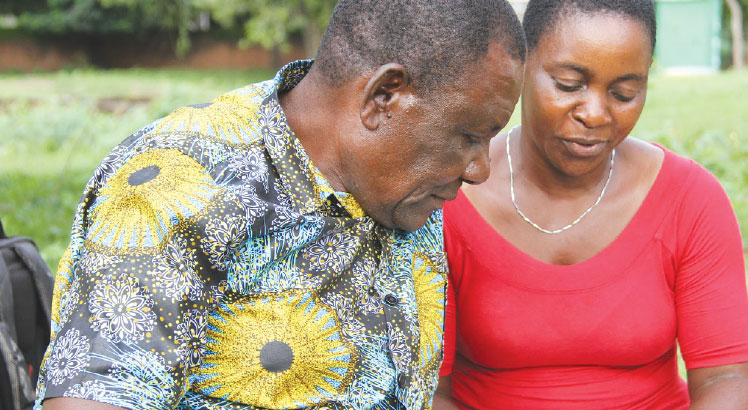ICT for improved farm yields
We are living in a digital age where information travels at the speed of light.
In recent years, most sectors have enjoyed a fair share of the benefits of fast-pacing technology, easing the creation and sharing of vital content for improved productivity.
Somehow, the agriculture sector has lagged behind, especially in least developed countries such as Malawi. The situation is, however, improving.
The National Smallholder Farmers Association of Malawi (Nasfam) has adopted the use of information and communications technology (ICT) to offer farmers relevant and timely information to improve their farming business.

Nasfam head of policy and communications Beatrice Makwenda says: “We saw the huge gap when it comes to disseminating information to our members in a timely manner. That pushed us to think of ways of dealing with the problem.
“Then, we had two projects which were interested in reaching out to beneficiaries with weather advisory messages through mobile phone text messages.
Nasfam developed a push SMS platform with support from the Technical Centre for Agricultural and Rural Cooperation (CTA) and the Green Climate Fund through the Malawi Government and the UN Development Programme (UNDP).
The platform has been operational since 2018.
Makwenda states: “It is pleasing to note that the platform proved very useful with the coming of Covid-19. Due to restrictions, it was difficult for field officers to hold physical meetings with farmers; hence, using technology was the most ideal alternative.
“We reached out to farmers with important information through their phone handsets. The information would range from Climate Smart Agriculture interventions, market access, post-harvest handling, Covid-19 prevention measures, and climate and weather advisory messages, among others.”
Victoria Zimba, 46, from Mbemba Village, Traditional Authority (T/A) Kyungu in Karonga Disrict, is one of the farmers benefiting from the SMS service.
She explains: “The messages have been helpful to my farming business. Talking about weather advisory messages, there are times when I have made important decisions about my farming based on the messages received.
“I remember at some point I was advised that we would not receive rainfall that week. As such, I had to rent irrigation equipment to sustain my crop for that dry period.”
The messages Zimba received in January helped her time rice nursery preparation.
“The messages alerted me that in week beginning January 5, we would receive rains. As such, I timed my activities accordingly. It is a critical service in this era of climate change.”
Youngson Mwayipape, 68, from Phaniso Village T/A Kilupura in the district, is a lead farmer who also receives advisory text messages from Nasfam.
He says: “When I receive these messages, I share with my fellow farmers so that they make informed decisions in their farming business.
“Depending on the seasonal forecast, a farmer decides whether to grow early maturing or late maturing varieties. In so doing, we minimise losses.”
With the Nasfam push SMS system, registered users receive regular farm-related SMSs on their handset at no cost.
The system gives every registered user an equal opportunity to access weather alerts, extension messages, and other advisory messages. This bridges the gap created by gender and geographical barriers.
Apart from mobile phone text messages, Nasfam also reaches out to its members with extension and advisory services through weekly radio programming using national and community radio stations, short videos, and print media, all in vernacular languages.





